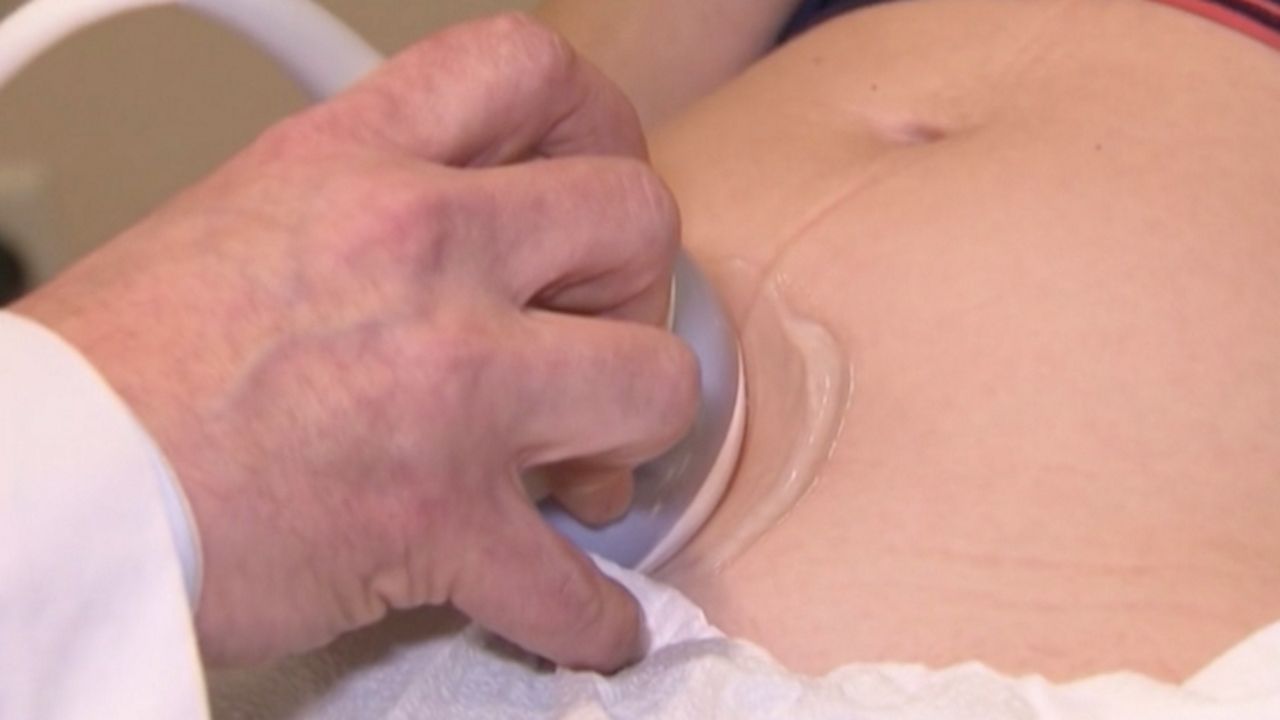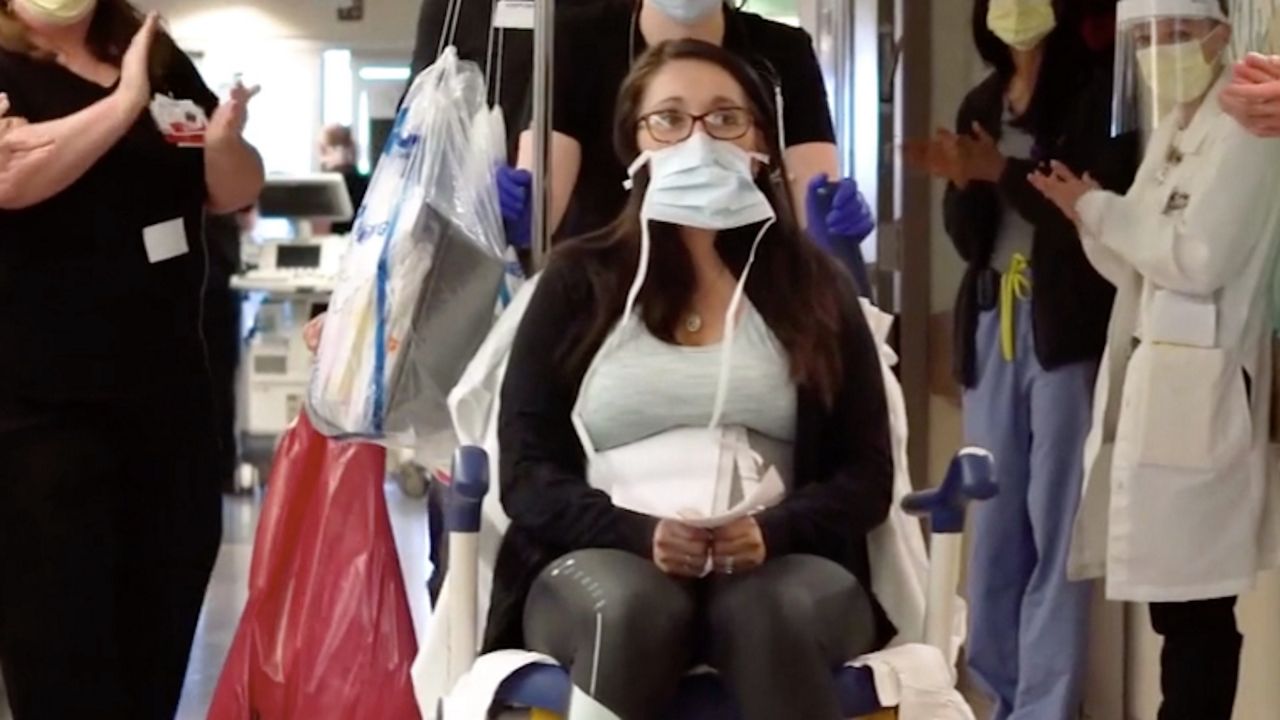CLEVELAND, Ohio — Division Director of Maternal Fetal Medicine at University Hospitals Dr. David Hackney says many things about the coronavirus and its impact on pregnant women are still unknown.
- Study aims to better prepare those working in maternity units as they care for COVID-19-positive patients
- Researchers project there could be 52 COVID-19-related maternal mortalities in the United States this year
- University Hospitals doctors worked closely with researchers at Georgia State University
What You Need To Know
But a recent study aims to better prepare those working in obstetrics and maternity units as they care for COVID-positive patients who come into the hospital to give birth.
“A lot of hospitals have a labor and delivery unit, a lot of hospitals have a critical care unit, but not all hospitals have the capacity to care for critically-ill pregnant women or to deliver a baby in the setting of a critical illness," said Dr. Hackney. "One of the concerns that exists with coronavirus already, is that intensive care units with just non-pregnant adults are going to become overwhelmed, so we wanted to try to get a sense of how many pregnant women are also going to need critical care services."
In the study published online in the American Journal of Obstetrics & Gynecology, Dr. Hackney and Dr. Manesha Putra project that there could be 52 COVID-19 related maternal mortalities in the United States this year.
“We found that approximately 16,000 women will be affected when they're in labor, and about 3,000 women will have severe cases and 600 women will have critical cases. and unfortunately, we forecast that there will be about 52 fatalities related directly to COVID-19. The number that we have is a national number. Certainly the number for every state, for every region could vary," Dr. Putra says.
The doctors worked closely with researchers at Georgia State University, who previously studied coronavirus models out of China.
Dr. Hackney says it is not yet known how much more or less susceptible pregnant women are to COVID-19 , but adds that pregnancy does alter the immune system, and that fact helped guide the projection.
“In our statistical model, we ran a range from where pregnant women are exactly the same as non- pregnant women with regards to their susceptibility to COVID, all the way up to a presumption that COVID is the same as the flu, and then trying to give a range of estimates between those two,” Dr. Hackney said.
He says given that the majority of American women deliver in a hospital setting, healthcare providers have a unique challenge in the fight against the novel coronavirus.
“A lot of hospitals have a labor and delivery unit, a lot of hospitals have a critical care unit, but not all hospitals have the capacity to care for critically-ill pregnant women or to deliver a baby in the setting of a critical illness," said Dr. Hackney. "One of the concerns that exists with coronavirus already, is that intensive care units with just non-pregnant adults are going to become overwhelmed, so we wanted to try to get a sense of how many pregnant women are also going to need critical care services."
In the study published online in the American Journal of Obstetrics & Gynecology, Dr. Hackney and Dr. Manesha Putra project that there could be 52 COVID-19 related maternal mortalities in the United States this year.
“We found that approximately 16,000 women will be affected when they're in labor, and about 3,000 women will have severe cases and 600 women will have critical cases. and unfortunately, we forecast that there will be about 52 fatalities related directly to COVID-19. The number that we have is a national number. Certainly the number for every state, for every region could vary," Dr. Putra says.
The doctors worked closely with researchers at Georgia State University, who previously studied coronavirus models out of China.
Dr. Hackney says it is not yet known how much more or less susceptible pregnant women are to COVID-19 , but adds that pregnancy does alter the immune system, and that fact helped guide the projection.
“In our statistical model, we ran a range from where pregnant women are exactly the same as non- pregnant women with regards to their susceptibility to COVID, all the way up to a presumption that COVID is the same as the flu, and then trying to give a range of estimates between those two,” Dr. Hackney said.
He says given that the majority of American women deliver in a hospital setting, healthcare providers have a unique challenge in the fight against the novel coronavirus.
“It’s both for hospitals and health care workers and I think it's an important study for the general public, from a hospital standpoint we need to know how much intensive care support pregnant women will need. We also need an estimate of how many women will be delivering babies in the hospital, who will be COVID-positive.
The study used data from March 1, 2020-April 14, 2020 to forecast the incidence of COVID-19 in the U.S. from April 15, 2020-December 31, 2020.
Putra and Hackney say releasing the information is not meant to intimidate, but to inform and better prepare hospitals and caregivers working on the frontlines.
“To some extent, forecasting, the impact of COVID on pregnant women, you almost sort of hope that your study results into being wrong," said Dr. Hackney.
“Yes the number looks scary, yes the number looks big , this is not a reason to not get medical care if you are delivering. We still think that the safest setting for you to deliver is in the hospital, and many hospital systems are implementing multiple measures to make sure that patients and healthcare providers are safe,” Dr. Putra said.









